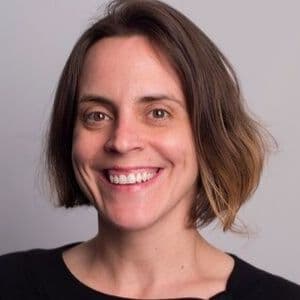
Renee Wegrzyn, Program Manager in the Biological Technologies Office (BTO) of the Defense Advanced Research Projects Agency (DARPA)
Dr. Renee Wegrzyn is a Program Manager in the Biological Technologies Office (BTO) of the Defense Advanced Research Projects Agency (DARPA), where she is pioneering disruptive approaches to leverage the tools of synthetic biology and gene editing to enhance biosecurity, support the domestic bioeconomy, and outpace infectious disease. She actively manages a portfolio at DARPA that includes the Living Foundries:1000 Molecules program, which seeks to transform biology into an engineering practice by developing the tools, technologies, methodologies, and infrastructure to prototype and scale engineered microbes that can produce molecules that are of value for government and commercial use; Safe Genes, which aims to deliver novel biological capabilities to facilitate the safe and expedient pursuit of advanced genome editing applications, while mitigating the risk of unintentional consequences or intentional misuse of these technologies; and Preemptive Expression of Protective Alleles and Response Elements (PREPARE), which aims to develop a new class of generalizable medical countermeasures that safely and temporarily tunes the activity of innate protective genes.
Prior to joining DARPA as a PM, Dr. Wegrzyn was a Senior Lead Biotechnologist at Booz Allen Hamilton, where she led a team that provided scientific and strategic support in the areas of biodefense, biosecurity, disruptive technologies, emerging infectious disease, neuromodulation, and synthetic biology to DARPA and other federal and private institutions. She is a former fellow and active mentor for the UPMC Center for Health Security Emerging Leaders in Biosecurity Initiative. Dr. Wegrzyn also led research and development teams in the biotech industry focused on the development of multiplex immunoassays and peptide-based disease diagnostics. She earned her Bachelor of Science and Doctor of Philosophy in Applied Biology with a minor in bioengineering from the Georgia Institute of Technology, and completed her postdoctoral training as an Alexander von Humboldt Fellow in Heidelberg, Germany.
